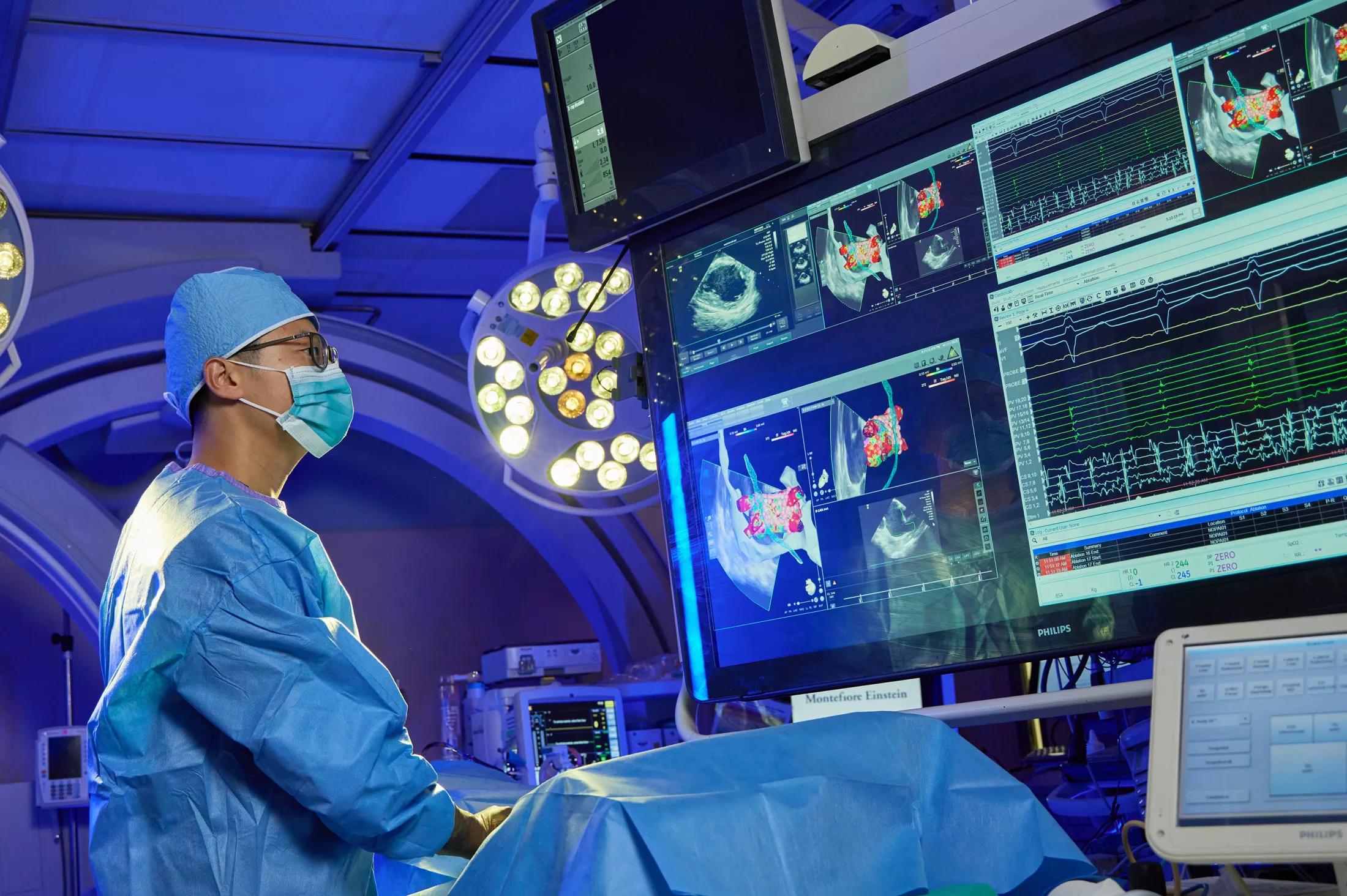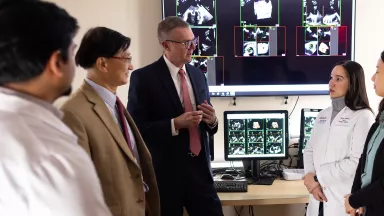Our Approach to Left Atrial Appendage Occlusion


Montefiore Einstein Atrial Fibrillation Program employs the latest techniques to eliminate atrial fibrillation—an irregular, rapid heart rhythm—by blocking the faulty electrical signals that cause it. Many patients can be treated successfully with medication that thins their blood, reduces the risk of blood clots, or regulates the heart rate. Our multidisciplinary team of cardiologists, electrophysiologists, and cardiothoracic surgeons collaborate across departments to develop the latest techniques for eliminating atrial fibrillation and achieving exceptional clinical outcomes, where medication is ineffective. In some cases, removing the atrial appendage where clots form is part of the treatment. We are ranked in the top 1% of all U.S. hospitals for Cardiology, Heart & Vascular Surgery by U.S. News & World Report.

Treatments We Offer
WATCHMAN™ Device
This procedure involves implanting a self-expanding Watchman™ device, which prevents blood clots in the left atrial appendage from entering the bloodstream.
LARIAT® Suture Delivery Device
This procedure involves implanting a device called LARIAT, which helps permanently seal it off from the heart to prevent stroke-causing blood clots.
The Amplatzer™ Amulet™ Occluder
The Amplatzer™ Amulet™ Occluder is one of the most commonly used devices for percutaneous left atrial appendage closure in patients with atrial fibrillation and high hemorrhage risk.
Coherex WaveCreat System
The Coherex WaveCrest System offers particular benefits for patients with atrial fibrillation who are at high risk for stroke, especially when anticoagulants are contraindicated and patients would otherwise be unprotected from cardiac-embolism.
Catheter-Based Ablation
Minimally Invasive Surgical Ablation
Maze-Cox Procedure

Your Atrial Fibrillation Team
Our interdisciplinary team of cardiologist and cardiovascular specialists collaborate to develop the most efficient techniques for performing left atrial appendage occlusion, using the most minimally invasive procedures whenever possible to improve patient outcomes and enrich overall quality of life.






